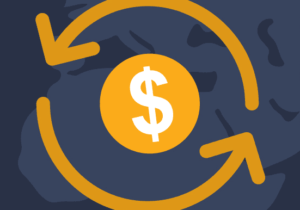The GSMA has released its annual report on the mobile money industry. This time around, the organization found that the demand for mobile money services increased as people searched for alternatives to cash in response to COVID-19.

The mobile money adoption rate was particularly high in countries that offered more pandemic relief to their citizens. Government payments to individuals quadrupled during the pandemic, and much of that financial support was distributed through mobile money apps.
Digging into the numbers, the GSMA reports that there are now more than 1.2 billion mobile money accounts, 300 million of which are being used on a monthly basis. The 1.2 billion figure represents a 13 percent growth rate for 2020, which is double the GSMA’s original estimates for the year. Mobile money platforms processed $2.1 billion worth of transactions every single day (up from $2 billion the year before), and $70 billion in the month of December alone.
There was also much more remittances activity over the course of the year. People sent a total of $12.7 billion (up 65 percent) to support friends and family members, with $1 billion changing hands on a monthly basis. The GSMA itself has repeatedly argued that mobile money can help raise financial inclusion, and is currently working with the UN World Food Programme to use the technology to distribute relief during humanitarian crises.
“We see that mobile money is a powerful tool for expanding the financial inclusion of women in low- and middle-income countries,” said GSMA Chief Regulatory Officer John Giusti. “This year’s report, however, found that women are still 33 per cent less likely than men to have a mobile money account. The GSMA and its members are committed to closing this gap by addressing the barriers that prevent women from accessing and using mobile financial services.”
The new report continues the upward trajectory for the mobile money industry, which handled 866 million accounts and $1.3 billion in daily transactions in 2018. The GSMA commended governments that relaxed their transaction limits to support the industry, but warned that fee waivers would make mobile money platforms less sustainable moving forward.

Follow Us